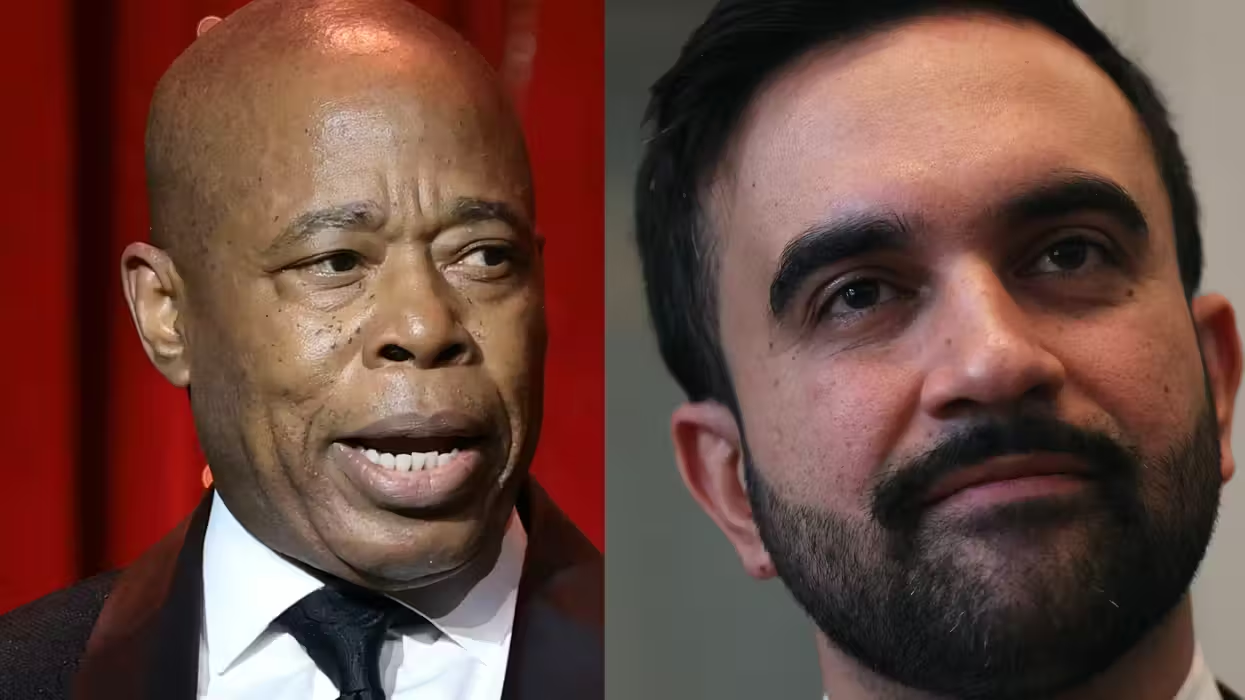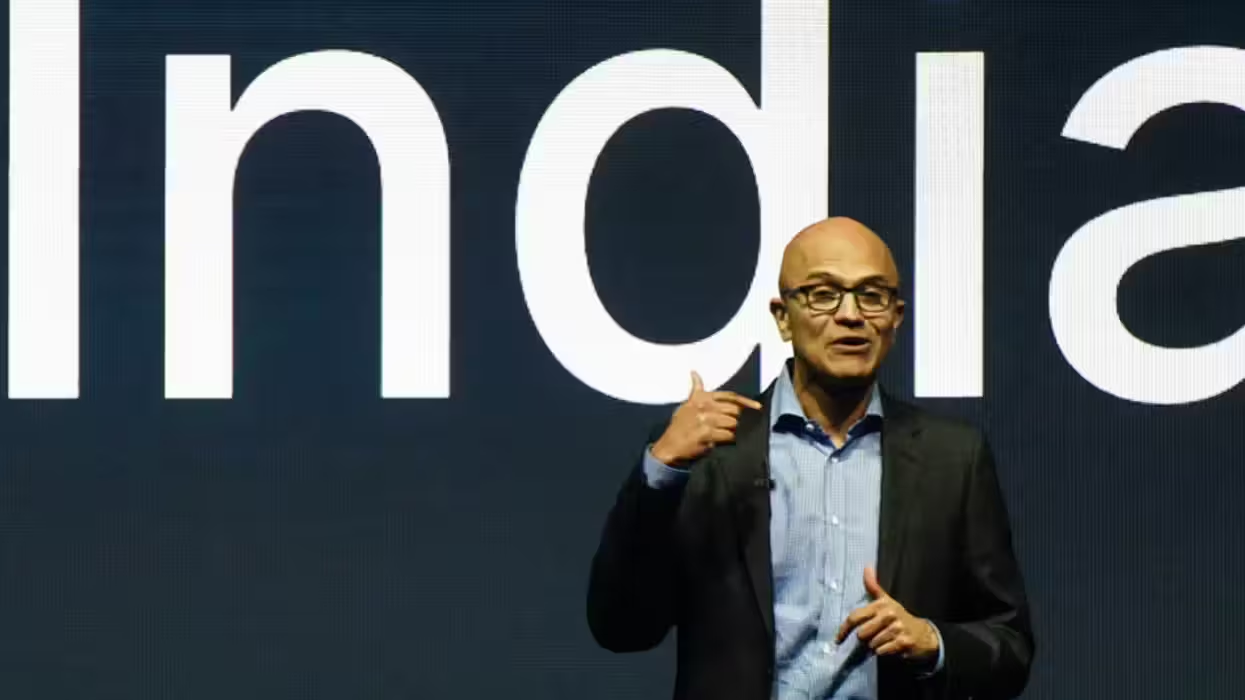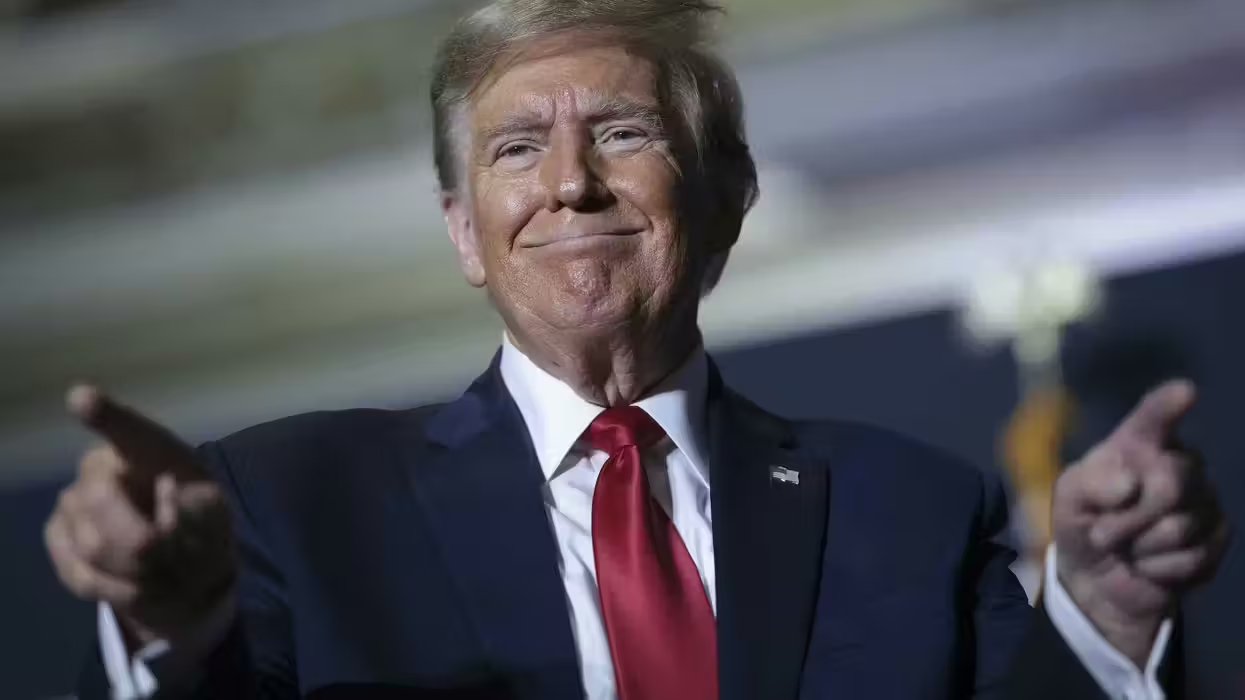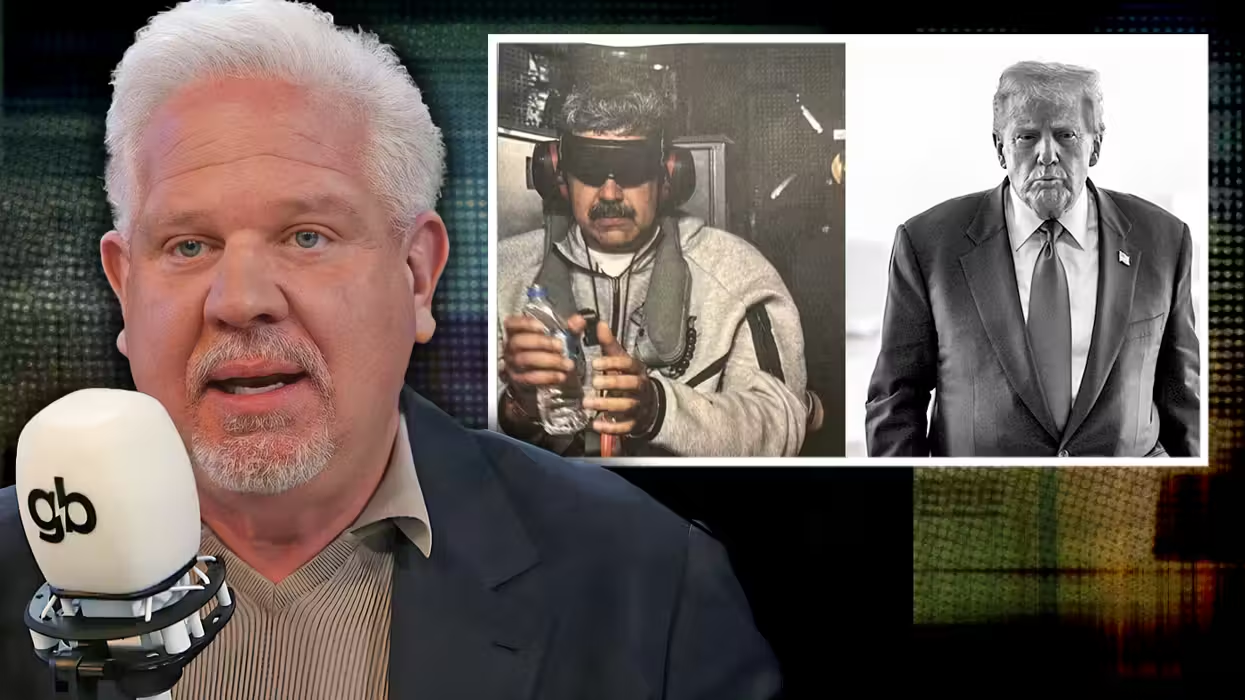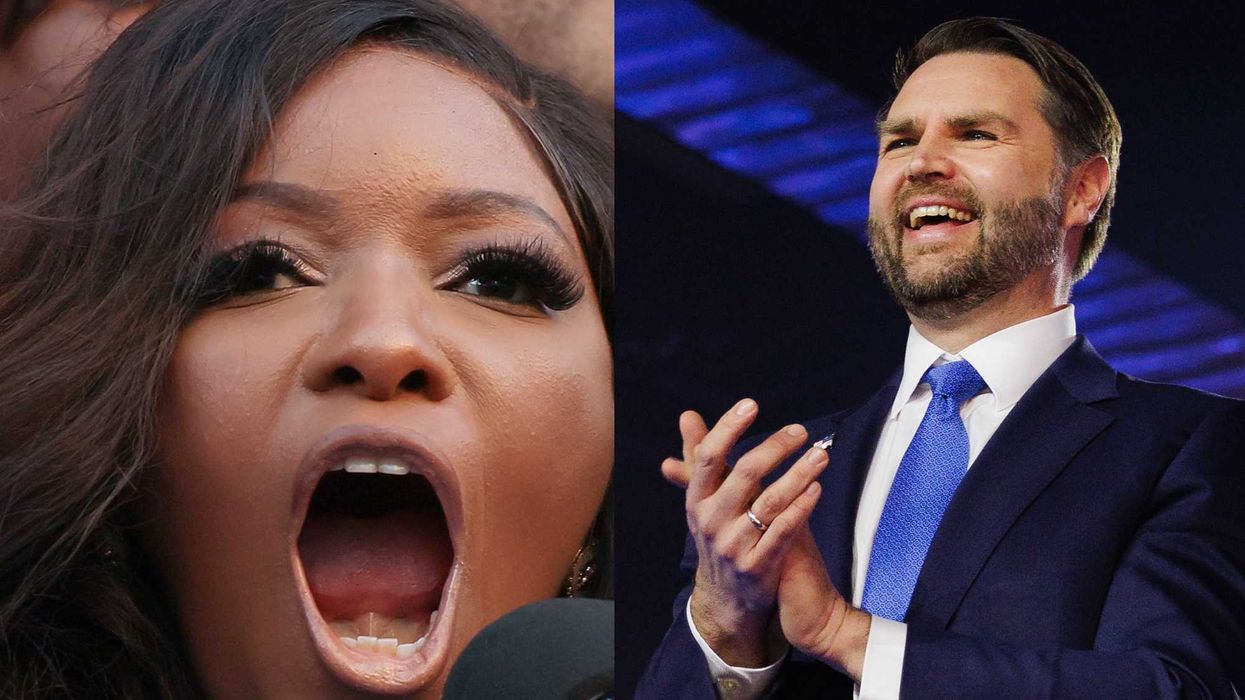
© 2026 Blaze Media LLC. All rights reserved.
How Have Americans’ Opinions on Faith & Religion Evolved Since 9/11?
September 12, 2011
"Atheist-bashing is now, like gay-bashing..."
Conventional wisdom tells us to be careful when discussing politics and religion, as both sectors hold the power to create intense controversy and debate. But in the years following the September 11 attacks, these two subjects have been at the forefront of the public discourse.
At all levels -- federal, state and local -- debate, whether it's about the construction of a mosque, the exclusion of clergy at a memorial or the motivations of Islamists, has been plentiful. September 11, itself, is an event that is characterized by both religious and political themes.
The faith of the radical terrorists who orchestrated 9/11 and the policies that resulted have made for some flammable debates and scenarios over the past decade. After all, how can these two issues, which are contentious on their own, be discussed among people with divergent opinions without incident?
There's no downplaying the significance that 9/11 has played both domestically and abroad. From disagreement over The Patriot Act to ongoing debate about the nation's military operations in the Middle East, 9/11 has spawned some serious deliberations.
 In many ways, 9/11 launched discussions -- for better or worse -- that may have never been addressed had the tragic event not occurred. In an article earlier this month, CNN's John Blake tackled this important issue, presenting four ways in which this monumental event changed Americans' attitude toward religion.
In many ways, 9/11 launched discussions -- for better or worse -- that may have never been addressed had the tragic event not occurred. In an article earlier this month, CNN's John Blake tackled this important issue, presenting four ways in which this monumental event changed Americans' attitude toward religion.
The first change Blake mentions is the "humbling" of the American people in the wake of the disaster. Since the nation's inception, the country has been relatively isolated from attacks by foreign forces. September 11 signifies the first time that Americans realized that we are no longer protected by oceans -- that violence, even on our soil, is more than plausible. Blake writes:
Most Americans had not lived with this vulnerability until 9/11, says Mathew Schmalz, a religion professor at the College of the Holy Cross in Massachusetts, who once lived in Karachi, Pakistan."We had this sense of specialness and invulnerability that 9/11 shattered," he says. "Given that a large section of the world's population deals with random violence every day, one of the outcomes of 9/11 should be a greater feeling of solidarity with people who live in cities like Karachi in which violence is a part of everyday life."
Considering the fears that have followed the introduction of terrorism into most everyday Americans' lives, some of this tragedy has become tangible. In this sense, some citizens have had their own faith in their fellow man shattered; others have struggled to find a balance between forgiveness and due process for those responsible.
The second attitudinal change that is mentioned in Blake's piece is the re-emergence of Christo-Americanism, a movement Wooster College (Ohio) religion professor Charles Kammer defines as "...a distorted form of Christianity that blends nationalism, conservative paranoia and Christian rhetoric."
This theory is one that is certainly debatable, as it is predicated upon the notion that the United States has a history of religious intolerance. Furthermore, it's tough to label the handling of the years following 9/11 as "conservative paranoia," especially when placing emotions and policy decisions into the context of what actually occurred. With the worst-case-scenario actually happening, how would one even begin to define "paranoia?"
Of course, what Kammer is getting at here is the collaboration of these elements -- a combination he believes led to unhealthy rhetoric and, potentially, the treatment of Muslims in America and abroad. There are certainly examples throughout the nation's progression that do show negative collective responses to various religious groups and movements. But is the treatment of Muslims in the wake of 9/11 one of these examples? Some would say it is, while others would flatly reject such an ideal.
Some researchers and experts say that Christian leaders like Rev. Franklin Graham and Pat Robertson fueled the fires of Christo-Americanism when they made disparaging comments about Islam. Kammer explains his thoughts on the matter:
"A segment of the religious community in the United States has been at the forefront of an anti-Islamic crusade that has helped to generate a climate of hatred and distrust toward all Muslims."
Regardless of whether Christo-Americanism is a reality or merely a concocted theory, skepticism over Islam has certainly been present over the past decade. Undoubtedly, Americans have struggled to understand the motivations behind the 9/11 attacks. The attempt to rectify the self-professed faith of radicals with a more mainstream understanding of Islam has led to confusion and frustration for many Americans.
Blaming the manifestation of these emotions on "Christo-Americanism," though, may be oversimplifying the elements involved in the long-term healing process that has followed the attacks. There was understandably a strong sense of nationalism and a resurgence of faith for many in the wake of 9/11. Additionally, there was a lack of understanding of Islam that continues even today.
Moreover, the actions of radicals across the globe have continued to deal massive blows to the peaceful lens through which the majority of Muslims wish to be viewed. In a sense, it is the search for understanding amid chaos that has led to the third element that Blake mentions in his piece -- interfaith dialogue.
Following the attacks, colleges, universities and communities began opening the floodgates to allow for discussions to take place between adherents of different religions. While believers who espouse diverse faith systems communicated in the past, there has been an influx of development in this area since 2001. Over the past decade, the religious have made a more profound effort to understand one another, or so the theory goes.
This, of course, has been especially prominent among Muslims, Christians and Jews, as these large faith groups have traditionally had a plethora of friction between them; 9/11 added yet another complicated element to interfaith dynamics. The increase in dialogue, to some, is a remedy.
An example of this ideal in practice is an event that took place over the weekend -- the seventh annual 9/11 Unity Walk. The commemoration brought together more than 1,000 people from a variety of faiths. This "open house" event, which is intended to remember the 9/11 tragedy, serves as a prime opportunity to get to know other religions:
The fourth item that Blake covers is the growth and projection of atheism. According to Daniel Dennett, a philosophy professor with Tufts University (Massachusetts), it's no longer appropriate to "bash" atheists. He explains:
"Atheist-bashing is now, like gay-bashing, no longer an activity that can be indulged in with impunity by politicians or commentators."
But CNN explains, from an atheists' perspective, why non-believers have become so much more vocal since the attacks took place:
Atheists were driven to become more vocal because of the 9/11 attacks and America's reaction, says David Silverman, president of American Atheists. He says many atheists were disgusted when President George W. Bush and leaders in the religious right reacted to the attack by invoking "God is on our side" rhetoric while launching a "war on terror." [...]"It really showed atheists why religion should not be in power. Religion is dangerous, even our own religion," Silverman says.
Some, though, would argue that atheists, themselves, are part of a religious system that is based upon non-belief. Regardless of the presence -- or lack thereof -- of a god, some view atheism as a system that follows many of the same rules and patterns that world religions embrace.
These four elements, while helpful to explore, raise more questions than they do answers. Certainly, faith in America is a complicated arena to delve into, especially considering the emotions that surround events like 9/11.
This year, alone, atheists were enraged about the presence of a cross at Ground Zero and the lack of prayer during the Washington D.C. and New York City commemorations frustrated the religious.
As the years progress, one thing is for certain: Regardless of where one stands politically or religiously, faith will continue to be a subject worthy of discussion and debate in America. The intermingling of anti-terror related policy, among other faith-government hybrids, will likewise continue to muddy the waters.
In the end, 9/11 created a heightened awareness among the religious and the unreligious, alike. But even 10 years later, the depth of this impact is still being examined.
(h/t CNN)
Want to leave a tip?
We answer to you. Help keep our content free of advertisers and big tech censorship by leaving a tip today.
Want to join the conversation?
Already a subscriber?
Billy Hallowell is a digital TV host and interviewer for Faithwire and CBN News and the co-host of CBN’s "Quick Start Podcast."
Billy Hallowell
Billy Hallowell is a digital TV host and interviewer for Faithwire and CBN News and the co-host of CBN’s "Quick Start Podcast."
more stories
Sign up for the Blaze newsletter
By signing up, you agree to our Privacy Policy and Terms of Use, and agree to receive content that may sometimes include advertisements. You may opt out at any time.
Related Content
© 2026 Blaze Media LLC. All rights reserved.
Get the stories that matter most delivered directly to your inbox.
By signing up, you agree to our Privacy Policy and Terms of Use, and agree to receive content that may sometimes include advertisements. You may opt out at any time.


